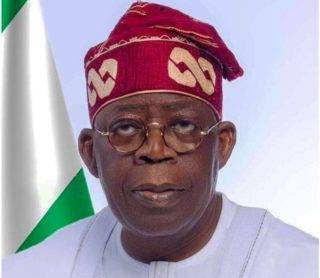The Samoa Deal, named after the Pacific Island nation where it was signed on November 15, 2023, originated from the European Union. It aimed to benefit countries within the African, Caribbean, and Pacific (ACP) regions. Nigeria initially withheld its signature due to controversial clauses, particularly those allegedly promoting LGBTQ rights, which sparked significant debate.
The Samoa Deal’s contentious nature stems from concerns that it might undermine Nigeria’s Same-Sex Marriage Prohibition Act of 2014, which enforces a 14-year jail sentence for anyone engaging in same-sex relationships. Despite these concerns, Nigeria eventually signed the deal on June 28, 2024, during a European Union reception in Abuja. This decision, disclosed by Minister of Budget and Economic Planning Abubakar Atiku Bagudu, led to a wave of controversy and debate across the nation.
Public Outcry and Government Clarification
Following the Daily Trust’s report, there was a surge of outrage among Nigerians, including clerics, politicians, and public servants. Many criticized the government for allegedly agreeing to terms that seemed to contradict the nation’s laws, traditions, and cultural values. The backlash prompted the federal government to clarify the nature of the Samoa Agreement.
Minister of Information Mohammed Idris addressed the nation, explaining that the Samoa Agreement is primarily a framework for cooperation between the Organization of African, Caribbean, and Pacific States (OACPS) and the European Union. He emphasized that the deal aims to promote sustainable development, combat climate change, generate investment opportunities, and foster international collaboration. Idris assured the public that the agreement does not invalidate Nigeria’s existing laws, including those prohibiting same-sex relationships.
Legal Safeguards and National Interests in the Samoa Deal
The federal government further clarified that Nigeria’s endorsement of the Samoa Agreement came with a Statement of Declaration dated June 26, 2024. This declaration explicitly stated that any provision of the agreement inconsistent with Nigerian laws would be considered invalid. Minister Idris highlighted that the 103 articles and provisions of the agreement were meticulously reviewed by an Interministerial Committee, comprising the Federal Ministry of Budget and Economic Planning, the Ministry of Foreign Affairs, and the Federal Ministry of Justice.
Idris assured the public that none of the clauses in the Samoa Agreement contradict the 1999 Constitution or other existing laws. He reiterated that the deal was signed in the nation’s best interest, aiming to secure sustainable development and international cooperation while upholding Nigeria’s legal and cultural standards. ::Same-Sex Marriage Remains Illegal.
Nigeria’s stance on homosexuality remains unambiguous and firm. In 2014, under the leadership of former President Goodluck Jonathan, a bill was passed that criminalized same-sex relationships, imposing a 14-year prison sentence for those found guilty. This legislative move followed a diplomatic rift between President Jonathan and then-US President Barack Obama. The bill received substantial support from the Nigerian populace and several African leaders who viewed it as a defense of traditional values. However, it also attracted significant criticism from the US government and international human rights organizations.
The law’s enactment underscored Nigeria’s commitment to its cultural and religious norms, positioning the country in stark opposition to the growing global acceptance of LGBTQ rights. Despite international pressures, Nigeria has maintained its stance, reflecting a broader trend across many African nations where same-sex relationships are still widely condemned. This ongoing legal framework ensures that same-sex marriage remains illegal in Nigeria, reinforcing the country’s adherence to its stringent anti-LGBTQ policies.
Transparency in samoa deal
In light of recent developments surrounding the Samoa Deal, experts have lauded the Nigerian government’s prompt clarification. The swift response emphasized that the agreement cannot override existing Nigerian laws, including the stringent anti-gay marriage bill. This move was crucial in maintaining public trust and averting potential backlash. Nonetheless, experts stress the need for enhanced communication from the government regarding sensitive international agreements. Such transparency is vital to prevent the dissemination of misleading stories by media outlets, which can provoke unnecessary public outrage.
While the government has highlighted the Samoa Deal’s importance for sustainable development and international collaboration, there has been insufficient discourse on the economic benefits it could bring to Nigeria. Key questions remain unanswered: Is the $150 billion associated with the deal a loan, a grant, or a combination of both? What specific economic opportunities and benefits could arise from this agreement? Addressing these questions is essential for fostering transparency and building public trust. Clear and detailed communication about the economic implications of the Samoa Deal would not only bolster confidence in the government’s actions but also ensure that the public is well-informed about the potential advantages and risks of such international collaborations
Table of Contents
Discover more from OGM News NG
Subscribe to get the latest posts sent to your email.














